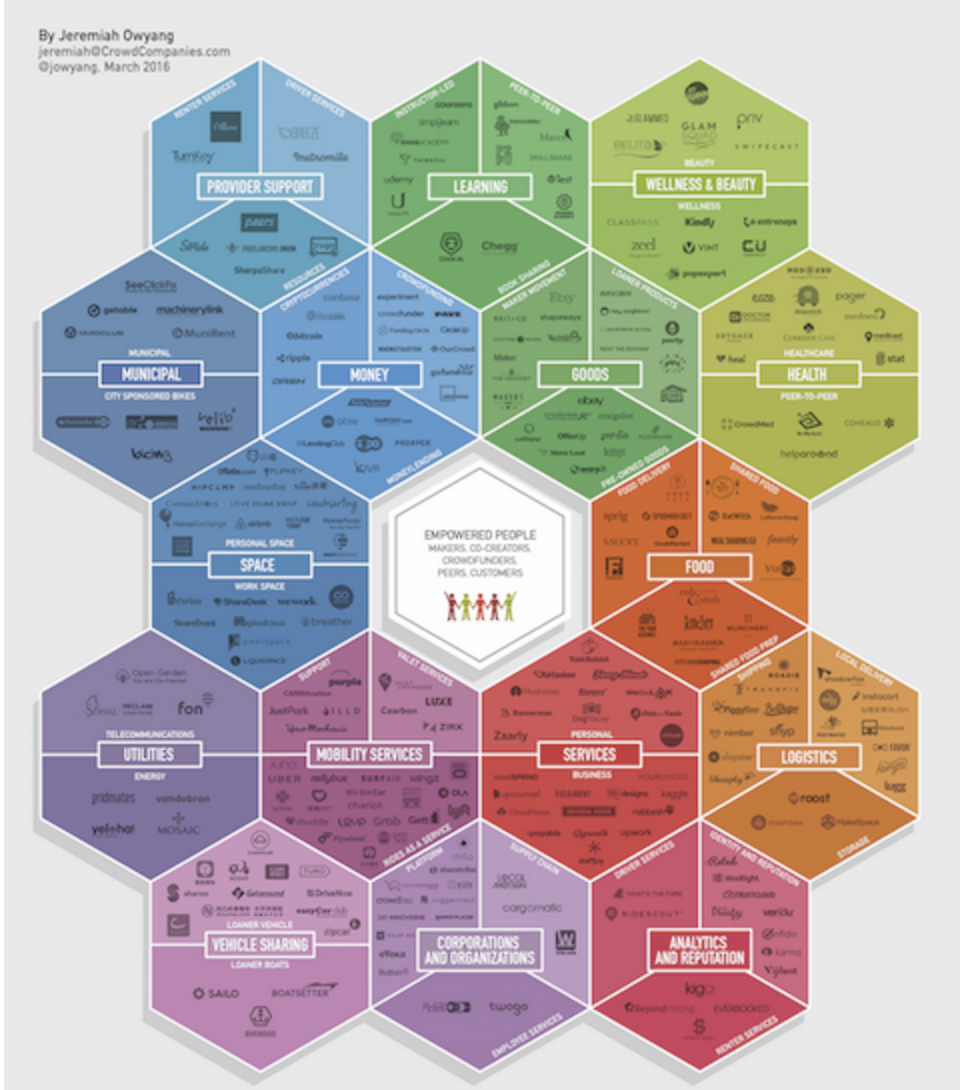Why the Sharing Economy is Here to Stay
Lyft, Coursera, Taskrabbit, Airbnb, Zipcar? You may have seen these names, heard about them on the news, or used their services. These services are all manifestations of what’s called the Sharing Economy (or Peer-to-Peer economy) in their own separate industries, and their popularity reflects a trend away from the more traditional consumerist style of buying from large corporations.

Wonder why? Well, after the crisis of 2008, the economy has become more precarious than ever, with household debt being steadily on the rise. This is especially true of the Millennials of the day (along with Generations X to a lesser, but still significant extent), who have also come to a realization that they could not live as their parents and grandparents did, what with the damage did to the Earth by the Industrial Revolution and beyond (Global warming, anyone?)
Thus, the response seems to be a sea change into a mindset of “own less, access more”.
Adding on that with the increasing lack of income security, many more individuals have begun to rely on their own pre-existing resources, using their own ingenuity to further tap into things they have owned but not put to full use.
With internet penetration increasing daily worldwide, more people are able to use technology to mitigate the risks of sharing their own personal property. How?
Through the Internet, and social media, we can use reputation checks or online records provided by service coordinators and platforms to ensure people are trustworthy, and the sharing economy’s thrives.
Indeed, it seems to be a win on multiple fronts. For one, you’re tapping into resources you have but don’t need to use all the time, by turning your very ownership into cold cash.
You’ve got a nice blue dress that you only wore once when your fifteenth cousin thrice removed got married? Rent it out to others, maybe. You get some of your cash back, and the person you rent it out to, saves a pretty penny as they didn’t have to buy a dress that they would only wear once!
Another thing is that the sharing economy, to put it simply, saves the Earth. With this, your assets might be used much more than if you weren’t lending it to others as well. What’s more is that you’ll most certainly get much more mileage out of it than if you were using it alone, a point that hasn’t been missed by the more environmentally conscious.
Let’s look at another example, shall we?
In winter, you have to heat your whole house, and pay for utilities and upkeep throughout the year, but you’re certainly not staying in there all the time, are you? In this, sharing a room produces less wastage of gas, water, and electricity per person.
Your roommate and you may use more energy collectively – but less individually, so that means less greenhouse gas emissions!
To add on to that, if you have a car, even better! Sharing your car with your roommate spreads costs, as well as reduces emissions since you’ll both be using one car instead of two individually again. Just a figure for you – car sharing participants have been shown to reduce up to 40% of their individual emissions.
The third fact is when you share, you build stronger relationship and bonds with friends and people you share your stuff with. One more interaction in this busy world. Go out there – help your friends, form strong bonds, we don’t live alone on our planet!
In our previous articles, we also mentioned several “Libraries of Things”, which are perhaps the most innovative incarnation of the sharing economy. Indeed, the example of having to first learn how to use a tool which you have borrowed is one of many which serve as gateways to greater bonding within the community.
When you lend something to someone, you’re going to want to know if you could trust them with your prized possessions – and what better way to get an impression of them than to interact with them in person? The sharing economy could be what we just need – a remedy to the individualistic and consumerist culture of late, and a chance to connect with others in an increasingly colder world.
But – there is no doubt that there are some issues with the sharing economy. A lack of trust still casts its shadow over the more paranoid and less tech-savvy who may be reluctant to participate in libraries of things and the sharing economy in general, even with the added security of today.
Another point to notes is also the fact that such ideas, and companies have increasingly been subjected to increased taxes and regulations, inflating the costs for both consumer and business as traditional businesses or governments attempt to adapt to the appeal and popularity of the sharing economy for millennials.
However, what is clear is that in the current climate, what with the rising costs of owning and maintaining assets such as houses and cars, as well as the increased jobs and services these provide for both consumer and worker – the sharing economy has found its niche and is here to stay.



